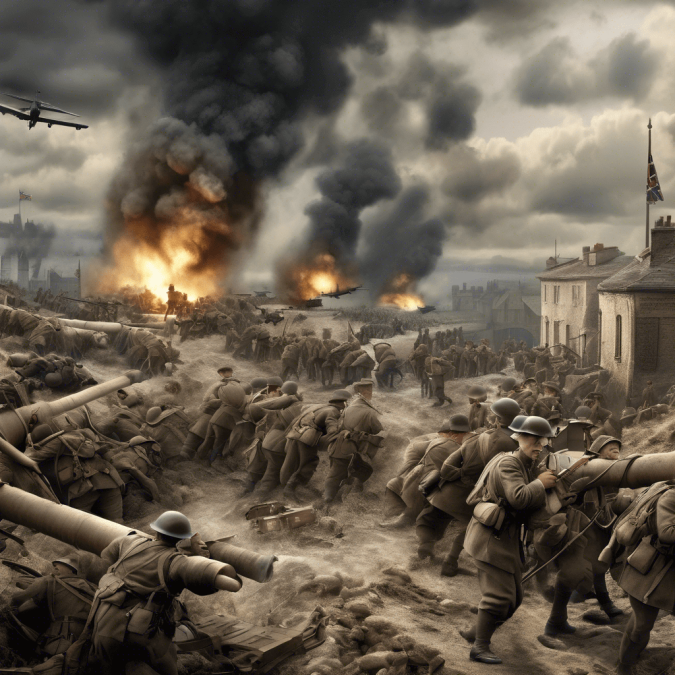
World War I, also known as the Great War, was a global conflict that lasted from 1914 to 1918. It involved many countries from around the world and had a profound impact on Europe and the rest of the world. In this article, we will explore why World War I began, what happened during the war, the countries that were involved, and the aftermath of the war.
World War I began on July 28, 1914, when Austria-Hungary declared war on Serbia. This declaration came in response to the assassination of Archduke Franz Ferdinand of Austria-Hungary by a Serb nationalist. The assassination sparked a chain of events that led to a domino effect of declarations of war among the major European powers.
The main countries that fought during World War I were the Allies, which included France, Russia, and the United Kingdom, among others, and the Central Powers, which included Germany, Austria-Hungary, and the Ottoman Empire. These countries were deeply divided by complex alliances and political tensions that had been brewing for years before the war broke out.
The war itself was characterized by trench warfare, chemical weapons, and brutal fighting on multiple fronts. Millions of soldiers and civilians lost their lives in the conflict, and the war left a devastating impact on the societies and economies of the countries involved. The war also brought about significant social and political changes, such as the rise of communist movements and the collapse of empires like the Austro-Hungarian and Ottoman Empires.
In terms of the outcome of World War I, the Allies emerged victorious. The Treaty of Versailles, signed in 1919, formally ended the war and imposed heavy penalties on Germany for its role in the conflict. The treaty also redrew the map of Europe, creating new nations and reshaping existing borders. The war also set the stage for World War II, as unresolved issues and resentments from the first conflict lingered and ultimately contributed to the outbreak of another global conflict just a few decades later.
The aftermath of World War I had a profound impact on Europe and the rest of the world. The war shattered old empires and created new political realities, setting the stage for the rise of totalitarian regimes and the spread of nationalist and fascist movements. The war also left a deep scar on the collective memory of the nations involved, shaping their identities and influencing their policies for generations to come.
In conclusion, World War I was a catastrophic event that forever changed the course of history. It began as a result of complex political and military alliances and ended with the world fundamentally transformed. The war had a lasting impact on Europe and the rest of the world, shaping the 20th century and beyond in ways that are still felt today.
